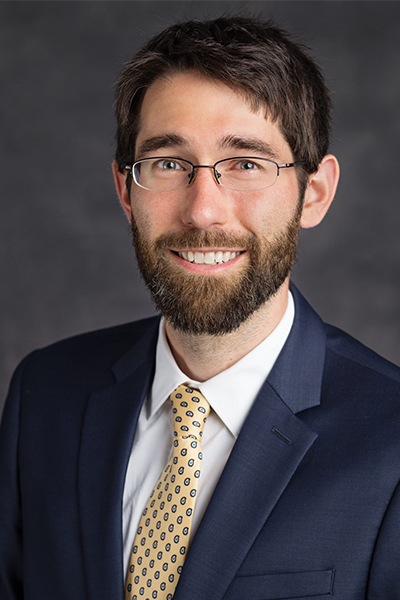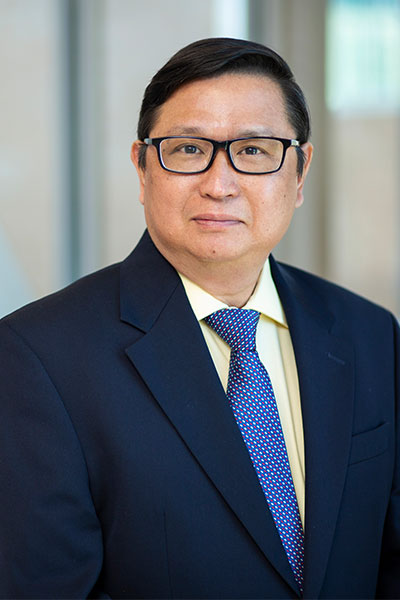Getting Started with Engineering Undergraduate Research
A presentation by Dr. Ryan Berke, Mechanical and Aerospace Engineering, ryan.berke@usu.edu
What *IS* Research?
Loose definition: Generation of new knowledge
Problems no one has solved before — no answer in the back of the book!
USU is a research university (so are most top-ranked schools), meaning that most of our faculty are predominantly researchers
As pre-professional student in Engineering: most of your interactions are with:
- Professors outside the College (Math, Science, etc) – not engineers
- Professors of Practice – primarily teaching roles, not research
- Professors in Engineering Education – research on education, not technical fields
Once you enter the professional program, more of your instructors will be researchers in your discipline
Why Do Research?
- Generate new knowledge
- Engage with material more deeply
- Direct mentorship from faculty advisor(s)
- Good experience for a job interview
- Often (but not always) paid
- Good preparation for graduate school
Why Do Grad School?
- Optional in engineering. There are plenty of well-paying jobs even without advanced degrees. However:
- If you work at a company big enough or technical enough where people have advanced degrees and you don't, you end up doing the grunt work for the people who do (don't get to appreciate the decision making we teach you)
- Opportunities to perform high-impact research
What *IS* Grad School?
(Very different from undergrad)
Undergrad
- Unlike doctors and lawyers, because not everyone goes to grad school, we have a lot of ground we need to cover and only 4 years to do it.
- The first 2 years are all math and science, don't start professional program until junior year
- Junior year is like drinking from a firehose.
- Senior year is still hard, but at least you get some say in what electives you take.
CONCURRENT PROGRAM: Can double-count some senior electives for graduate credit
Grad
- Fewer, harder classes (typically 2/semester) and all electives
- Majority of your time is spent on research
- Undergrad research helps get a head start (already know procedures & equipment)
- Most grad students are either paid as Research Assistants or Teaching Assistants
- Undergrad research helps your advisor to plan your funding if you stay in the same lab
Exception: Non-thesis Master's (Plan C)
- Heavier course load (typically 4-5/semester) but no research
- Able to graduate more quickly
- Not recommended unless an employer pays for it
Undergraduate Research
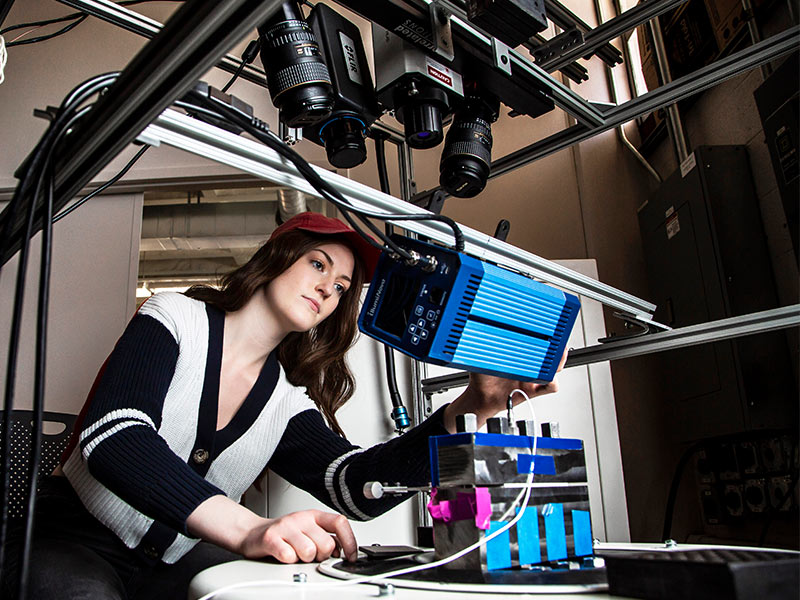
USU has the second-oldest undergraduate research program in the country (after MIT).
- In 2020 we were rated the best program in the country by the National Council for Undergraduate Research (CUR)
Many programs in place to support undergraduate research:
- Undergraduate Research Fellows (URF)
- Engineering Grand Challenges Program
- Goldwater Scholarship
- Engineering Undergraduate Research Scholars (formerly EURP)
- Concurrent BS/MS Programs
- Undergraduate Research and Creative Opportunities (URCO)
- Student Travel Awards
- Presentation Opportunities & Competitions
You do not have to enroll in any of these to do research!
Many professors also employ undergraduate research assistants outside of these programs
Freshmen and Sophomores
- Undergraduate Research Fellows (URF)
- Eligibility: Any USU student with at least 6 semesters remaining before graduation, not limited to the College of Engineering.
- Benefits: A $500 stipend for every semester that you participate in undergraduate research, plus social events and workshops to heighten your undergraduate research experience.
- Deadlines: April 15 (early priority) and June 15
- Engineering Grand Challenges
- Eligibility: Freshmen and sophomores in engineering
- Benefits: $750/year scholarship, plus a research mentorship in 1 of 14 Grand Challenges identified by the National Academy of Engineering
- Goldwater Scholarship
- Eligibility: Sophomores and Juniors in STEM with a high GPA (historically 3.85+), prior research experience, and a demonstrated interest in a career in STEM research.
- Benefits: $7500/year scholarship, plus a prestigious national award that identifies you as one of the next leaders in STEM research.
- Deadlines: The USU faculty mentors begin coaching students in early September to prepare competitive applications. The top 4 finalists are submitted for national consideration in January.
Juniors and Seniors
- Engineering Undergraduate Research Scholars (formerly EURP)
- Eligibility: Engineering students who will be accepted into their professional program by the start of their proposed project.
- Benefits: Matching funds for 3 semesters of paid research experience
- $14/hour for up to 450 hours
- NEW in 2023: Participants who stay for grad school will have 1st semester of in-state graduate tuition paid by the College of Engineering
- Deadlines: Annually late November or early April (next deadline: Nov 18, 2022)
Out of all the programs listed here, this is the one that I think most Engineering students and faculty default to and are most familiar with. If you approach a faculty mentor for any of the others, you may have to explain what the program is.
- Concurrent BS/MS Programs
- Eligibility: Juniors and seniors in engineering who meet a minimum GPA requirement (varies by department)
- Benefits: Ability to take 6000-level courses during your senior year. Can double-count up to 2 senior technical electives towards meeting MS degree requirements.
- Deadlines: First semester of senior year
Apply Any Time
- Undergraduate Research & Creative Opportunities (URCO)
- Eligibility: Any USU student from any major or any year in their program
- Benefits: Matching funds to cover a $1000 scholarship plus up to $1000 of research-related expenses
- Deadlines: June 15th, October 15th, or February 15th
- Student Travel Awards
- Eligibility: Any USU student who is traveling to present research
- Benefits: Up to:
- $200 to attend a regional conference (i.e. Utah and any state sharing a border),
- $300 to attend a national conference (i.e. any other state), or
- $400 to attend an international conference.
- These funds are generally matched 1:1 by the student’s academic department, and the research advisor can often cover any remaining costs.
- Deadlines: First come, first served
- Presentation Opportunities (various deadlines)
- Fall/Spring Student Research Symposia (SRS)
- Utah Research on Capitol Hill
- Utah Council for Undergraduate Research
- National Council for Undergraduate Research
- Annual Meetings of Professional Societies (ASME, AIAA, IEEE, SWE, oSTEM, etc.)
Finding an Advisor
- See department webpages for list of faculty and their research interests
- Find one you’re interested in and email to set up a meeting
- Don’t spam them all at once – it looks like you don’t care about the subject
- Even if they don’t have space in their lab, they’re probably happy to discuss their research
One shortcut: see who teaches the classes that most interest you
- Not a perfect shortcut. Works better for 5000/6000-level electives.
- Professors in EED teach sophomore courses, but their research is more about education.
- Professors of Practice have primarily teaching roles, no research.
You can also ask your EURP representative. We’re used to playing matchmaker.
EURP Representatives
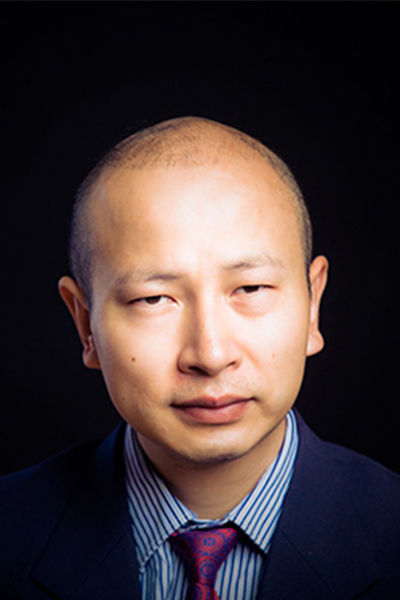
Yu Huang (BE) yu.huang@usu.edu
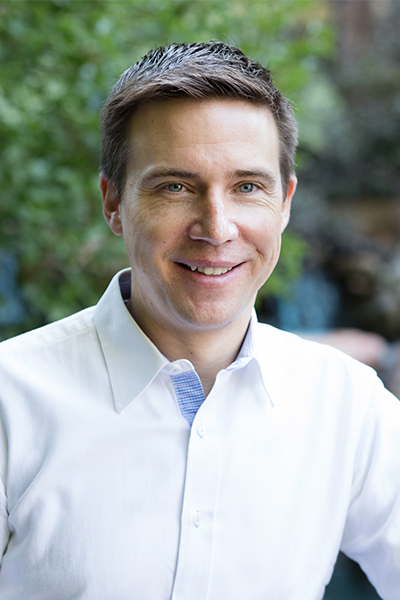
Regan Zane (ECE) regan.zane@usu.edu
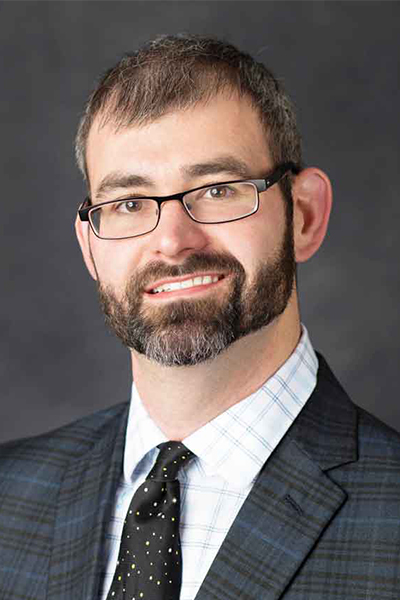
Ryan Berke (MAE)
ryan.berke@usu.edu
- Please be clear up front if our lab is one you’re considering. It makes it easier to know which hat we’re wearing.
Finding the Right Fit
I like to think of each professor’s lab like a small start-up company, and the University is like a parent corporation that handles all the HR stuff
Each lab spans a portfolio of projects based around the professor's research area
- Each student's project needs to complement that portfolio
- You don’t need to come up with a project by yourself – the professor will help
- The stuff on a professor's website may not be the stuff they're actively recruiting for (Treat each website like a portfolio, not a menu)
Each professor has their own management style.
- Some use undergraduate researchers more heavily than others.
- Most will prioritize students interested in grad school, especially PhD students.
- Able to make longer-term investments, achieve more depth on a given topic, not have to train new students as often.
- With that said, undergraduate researchers have their own advantages
- Cheaper, able to explore a wider range of projects on a tighter budget
- Pre-professional students:
- Similar advantage as a PhD student in that you have more time until you graduate, and can achieve more depth on your topic.
- Some projects may be more appropriate than others depending on your technical background, but there are still opportunities to be had.
- Don’t assume that you can’t contribute just because you’re still learning
Final Thoughts
Like any career advice, if you ask 10 people you’ll get 10 answers.
- I feel like this was a pretty accurate introduction to research but your mileage may vary.
- Seek advice from other trusted experts too.
There's also an element of luck
- New research grants could get funded at any time.
- Students graduate or quit all the time, may need to be replaced.
- Just because I don’t have a spot in my lab now doesn’t mean I won’t have one next week.
In research, successes build on each other such that the more you put in, the more you get out.
- Don’t make it just another line on your resume.
- Try to commit at least 10 hours/week if you can.
This doesn’t have to be the only discussion.
- Feel free to contact me any time, even if it’s to ask about another lab.
- Most of the professors are happy to talk about their research too.


